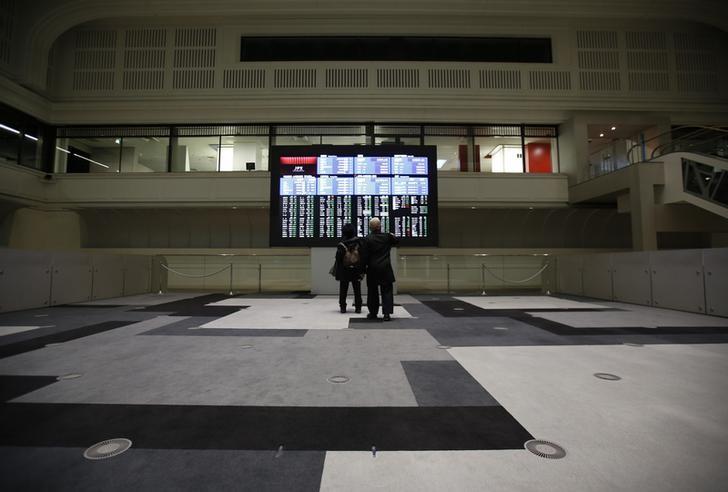Asia stocks, dollar slip amid US election tension
SYDNEY: Asia shares joined the US dollar on the defensive on Thursday as the nail-biting US presidential race saw the S&P 500 suffer its longest losing streak in five years as investors sailed to safer harbours.
Tensions were aggravated by media reports that some agents at the FBI had wanted to press ahead with an investigation of the Clinton Foundation, but senior officials at the agency and at the Justice Department did not think much of the evidence.
Dealers said Asian markets were reacting with caution to the reports, but there was some precautionary selling of dollars.
The US currency slipped 0.5 percent to 102.75 yen, while the euro edged up 0.2 percent to $1.1116.
The dollar in turn added 0.5 percent on the Mexican peso, which acts as a bellwether for investor angst over the risk of a victory by Republican Donald Trump. Trump's radical positions on Mexican migration and trade could severely disadvantage the US's southern neighbour if he wins.
Sovereign bonds, gold and Swiss franc were also in favour, and even the prospect of a December rate increase from the Federal Reserve could not steady the dollar.
MSCI's broadest index of Asia-Pacific shares outside Japan dipped 0.3 percent, while South Korea eased 0.2 percent. Shanghai added 0.3 percent.
Emini futures for the S&P 500 slipped 0.3 percent, while Treasury bond futures gained.
Tokyo markets were closed for a holiday, which was likely just as well as the Nikkei would have been hard pressed by the rising yen.
Narrowing polls had already led markets to price in more risk that Trump might defeat his Democratic rival Hillary Clinton, perhaps remembering the turmoil that followed the surprise Brexit vote.
An average of polls compiled by the RealClearPolitics website showed Clinton just 1.7 percent ahead of Trump nationally on Wednesday. A Reuters/Ipsos daily tracking poll released late the same day showed Clinton ahead by 6 percentage points among likely voters.
Investors generally view Clinton as a known quantity, but there is deep uncertainty about what a Trump win might mean for US economic policy, free trade and geopolitics.
"We are not quite at the point where we need to think about canned food and underground wood bunkers, but we are being schooled in understanding the dynamics politics plays on financial markets," said Chris Weston, chief market strategist at broker IG Research.
"Despite all the thoughts about central bank policy changes, improving inflation trends and ever-changing economics, politics dominates markets above all else."
SLOW MOTION FED
The baleful effect was all too apparent on Wall Street where the Dow ended Wednesday down 0.43 percent. The S&P 500 lost 0.65 percent and the Nasdaq 0.93 percent.
Another session of losses for the S&P would match the record for consecutive down days set in 2008.
Politics also overshadowed the Fed's November policy meeting where it kept rates steady as expected and opened the door a little wider to a rate rise next month.
"Barring a shock to the global economy and/or upheaval in financial markets, we continue to anticipate a 25 basis point rate hike at the 14 December meeting," said Peter Dragicevich, a senior currency and rates strategist at CBA.
"We, and the FOMC, are looking for the tightening cycle to continue to be slow and limited," he added, predicting just two more rate increases over 2017.
In commodity markets, spot gold was firm at $1,302.66 an ounce, having hit its highest since Oct. 4.
Oil pared some losses after sliding on Wednesday when data showed weekly US crude inventories rose 14.4 million barrels, far above forecasts.
Helped by the weaker dollar, US West Texas Intermediate crude bounced 45 cents to $45.79 a barrel, though that followed a near 3 percent drop overnight. Brent added 58 cents to $47.44.






